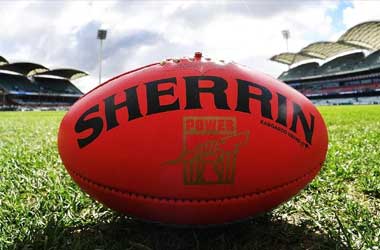Do’s And Don’ts Of Gambling In The UK

Certain institutions are involved in the laws, and some are instated because of other laws such as anti-money laundering and the organized crime prevention. The Gambling Act 2005 also known as ‘the GA 2005’ has a few divisions in under which certain laws are enforced, together with the Gambling (Licensing and Advertising) bill 201.
The Gambling Act 2005
The duty of the Gambling Commission is to oversee all gambling activities in the UK. Before the licenses could be issued, they needed to be approved and whitelisted by gaming jurisdictions such as Gibraltar and Alderney. The GA 2005 now provides clear legislation with regards to online gambling. The National Lottery is also governed by the Commission as they have merged with The National Lottery Commission in 2013.
Social games are exempt from this regulation; however, as many games that are available on a social level are still available for real money, it is of vital importance to determine if the online facility you are registered at, is adequately licensed.
Legal age
Some forms of gambling are permitted in the UK; however, you need to be of a certain age to be able to participate. Eighteen is the current age for gambling to be permitted; however, certain games or lotteries have other age restrictions. For any gambling centre, whether it is online or inland, the legal age is 18; this will include betting shops, racetracks, and bingo halls. If you are interested in social gaming, lotteries or football pools, there will be a minimum age restriction of 16 years. Should you be between the ages of 16 and 18 and you participate or place a bet in a casino, you will be prosecuted, as they do not fall within the exceptions.
Gambling (Licensing & Advertising Act 2014
Advertising and material promotions
Entities that offer remote gambling services and access can be gained from the UK need to be adequately licenced by the Commission. Some advertising terms referred to as advertising only means that they are advertising in the UK but the residents are not allowed to make any purchases or to participate. Look at a football sponsorship for example; the UK team would be promoted during the broadcast of the game. However, this is not permitted by the Commission. A similar trait is the promotion of overseas lotteries in the UK, this is also not permitted.
Further to the advertising restrictions, there are a few rules that need to be adhered to. The advertising should be truthful, not misleading or offensive information should be provided. The advertising content should not appeal to minors or in any means portray that gambling can be used to restore your financial and personal positions.
Retail stores
The provision of gambling machines has recently changed, as previously established licences were provided on the merit of the appropriate revenue that will be made from this machine, now it has been specifically evaluated according to the location and the intention to provide other services too such as over the counter betting. In addition to the application, proof needs to be supplied that a risk assessment has been done and that high paying machines are not left unattended or in an easily accessible location. This will put high pressure on retailers as they will only be granted a licence should they adhere to all the requirements, together with the Anti-Money laundering policies.
Compulsory Tax regulations
Any punter participating in a casino or betting environment cannot be taxed, thus no winnings are taxable. However, for the provider, there are compulsory taxes and levies that need to be adhered to. The taxes are being determined by calculating the stakes lost and subtracting the winnings paid.
- Remote Gambling – The current rate is at 15% is taxable for remote casinos and sportsbook locations, this includes Bingo and Poker. Since 2014 the tax has been automatically triggered if the client is a resident in the UK. The same rate applies to the pool betting duty.
- Land-based casinos – Bookmaking/sportsbook will trigger a payment of 15% of their taxes. Land-based casinos have a steep 50% tax to pay and land-based bingo only 10%.
- Skill games – 20% VAT is payable on Skill games, however, they are not regulated by the Commission.
- Exchanges – Betting intermediaries are required to pay 15% commission as if they are not making the payment on behalf of a customer or bet-taker.
- Spread betting companies such as football, need to pay an amount of 3% on financial bets and 10% on sports spread bets.
Further to the compulsory Tax regulations, all operations are requested to make a percentage donation or contribution to a non-profit organisation, for example, a company that assists people with gambling problems or financial issues. This also rules to companies not based in the UK but accept UK residents as players. Until now, companies have adhered to these policies voluntarily and it has not been made law.
Social responsibility for licencing includes that a clause needs to be included in their terms and conditions with regards to having assistance available for problem gamblers, this cannot be excluded for a period exceeding 6 months.
Anti-Money Laundering and financial implications
This directive has been implemented in non-remote and remote casinos. All winnings or deposits that exceed the amount of €2000 needs, to follow the KYC (Know Your Customer) procedures. Furthermore, an anti-money laundering officer needs to be appointed and the confirmation that all tip-offs are not prohibited.
All casinos need to be vigilant in the KYC process as it includes the establishment of the source of the funds used for the deposits, which are in conjunction with POCA (Proceeds of Crime Act) and the Prevention of Organised Crime Act.
Non-remote casinos in the UK do not accept any form of payments by credit or credit card. The use of debit cards is also being prohibited.




